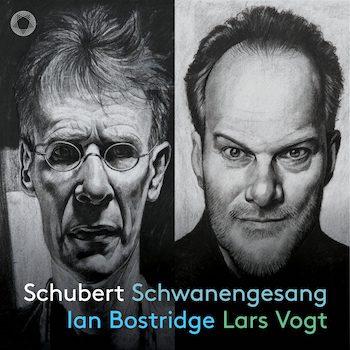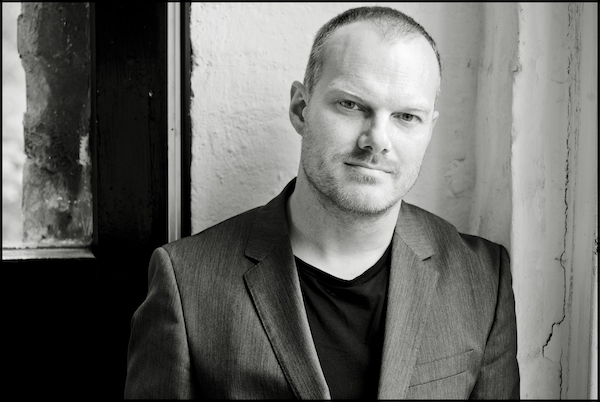Classical Album Review: The Late Pianist Lars Vogt — A Brilliant and Immensely Loved Musician
By Susan Miron
I feel that I have lost a dear friend whom I met through profoundly heartfelt recordings and, in the form of interviews, inspiring self-portraits.
On September 5, when the great and immensely loved pianist and conductor Lars Vogt died from cancer at age 51, much of the music world was sent into shocked mourning. Vogt had just taken part in an extremely intimate interview — it almost felt like eavesdropping — just a few weeks before on You Tube’s Living the Classical Life — Episode 94. He talked about his cancer treatment, his fervent wish to see his small daughters grow up, and his love of Brahms. I remember being deeply touched and amazed at this brave soul whose heart was so full of life and love of music. “I love playing the piano but I prefer to be alive” was his pithiest quote.
My immediate reaction to his death was to try to find all the performances of his that I could and to listen to them around the clock, particularly to his recordings with his longtime close friend, violinist Christian Tetzlaff. You Tube, luckily, offered a number of Vogt’s superb concert recordings. For me, the most unforgettable of the lot were his encores of Brahms’s Intermezzo #117, #1 (which I was working on as a harp piece) and Brahms’s famous Lullaby. Vogt adored Brahms — his dark harmonies, the omnipresent melancholy — and his many Brahms recordings are wonderful, particularly his performances on discs featuring Sonatas for Piano and Violin, Piano Trios, and Piano Quartets.
I also accumulated a tall pile of Vogt CDs as I read and listened to several long interviews (including an excellent two-hour talk with Czech harpist Jana Boušková).
I was thrilled to hear there was one more CD in the pipeline. But there was an initial problem. The recording of Franz Schubert’s Schwanengesang (Pentatone) has been given an unforgivable, tacky, and heartless cover image. It features a pair of distorted fun house images of Vogt and tenor Ian Bostridge. Its gratuitous ugliness bears no thematic relation to the song cycle. Couldn’t a more appropriate visual have been found? Whose idea could this have been, so shortly after the pianist’s tragic death? (Note: Pentatone used the same tasteless, grotesque images of Bostridge and his two other pianists on the singer’s two previous Schubert CDs.)
 Bostridge and Vogt performed this Schubert cycle at London’s Wigmore Hall two years ago, and recorded it there last November. (Many great singers have recorded the cycle: Fisher-Diskau purportedly did so five times. Bostridge has released an earlier recording with Anthony Papano.) Bostridge has always struck me as a rather intellectual singer, but I liked his singing more than usual here. Besides being a beguiling pianist, Vogt was an inspiring colleague, often making his musical partners exceed their customary level of performance. He plays here with a keen, brainy, and expressive thoughtfulness. Because this is Vogt’s untimely swan song, listening to this collaboration is terribly poignant.
Bostridge and Vogt performed this Schubert cycle at London’s Wigmore Hall two years ago, and recorded it there last November. (Many great singers have recorded the cycle: Fisher-Diskau purportedly did so five times. Bostridge has released an earlier recording with Anthony Papano.) Bostridge has always struck me as a rather intellectual singer, but I liked his singing more than usual here. Besides being a beguiling pianist, Vogt was an inspiring colleague, often making his musical partners exceed their customary level of performance. He plays here with a keen, brainy, and expressive thoughtfulness. Because this is Vogt’s untimely swan song, listening to this collaboration is terribly poignant.
Schwanengesang has a storied history. It has been suggested almost every song in Schwanengesang deals with love or its absence, much like Beethoven’s “An die ferne Geliebte,” which is sometimes programmed alongside it. Critics often speak of Schubert’s “three great song cycles,” but Schwanengesang is not a conventional example of the form, unlike Schubert’s more famous Winterreise and Die Schöne Müllerin. The fact is, this collection of 14 songs was cobbled together in 1829 — the year after Schubert’s death — by his publisher, Tobiias Haslinger. The first seven songs are settings of poems by Ludwig Rellstab (1799-1860), followed in Haslinger’s compilation by six songs set to poems by Heinrich Heine (1799-1856). Haslinger completed the set by slapping in “Die Taubenpost” (The Carrier Pigeon) with words by Johann Gabriel Seidl (1804-1875). This was the last song Schubert composed. It bears no connection to the first 13 poems in the series: “That’s why I cherish her (the pigeon) in my heart.… Her name is Longing (Sehnsucht)- –Do you know her? The Messenger of faithfulness.”
(Note: In the original manuscript, in Schubert’s hand, the first 13 songs were copied in a single setting, on consecutive manuscript pages, and in the standard performance order. There is some suggestion that Schubert had intended to publish the settings of Rellstab and Heine separately, given that he had offered the Heine set of poems to the Leipzig publisher Probst.)

The late pianist and conductor Lars Vogt. Photo: CM Artists
Most of Schwanengesang’s symbols of nature (and human nature) are familiar Romantic tropes — murmuring brooks, forests, nightingales, a beloved being serenaded at a window, yearning, heartbreak, farewells. The album closes with Schubert’s earlier Einsamkeit (D. 620, 1818), a piece that Vogt loved. It is an 18-minute, multisection setting of Austrian Johann Mayrhofer’s poem, which meditates on the meaning of life. We first encounter the human spirit’s youthful desires for love, friendship, worldly success, rapture, and glory. Then, with the coming of age, arrive the challenges of melancholy and solitude.
I have now listened to two months of Lars Vogt’s memorable music-making. If I were commanded to recommend only two of his albums, they would be Leoš Janáček’s On an Overgrown Path and the Brahms Piano and Violin Sonatas, performed with his close friend of 26 years, Christian Tetzlaff. I feel that I have lost a dear friend whom I met through profoundly heartfelt recordings and, in the form of interviews, inspiring self-portraits.
Susan Miron, a harpist, has been a book reviewer for over 30 years for a large variety of literary publications and newspapers. Her fields of expertise were East and Central European, Irish, and Israeli literature. Susan covers classical music for the Arts Fuse and the Boston Musical Intelligencer.
Tagged: Ian Bostridge, Lars Vogt, Pentatone, Schwanengesang

Very touching review of this wonderful musician and beautiful soul. The Brahms c minor piano quartet is magical.
What an amazing artist . His Brahms intermezzi recording is also absolutely beautiful . Right up there with Lupu’s classic version and better recorded. RIP